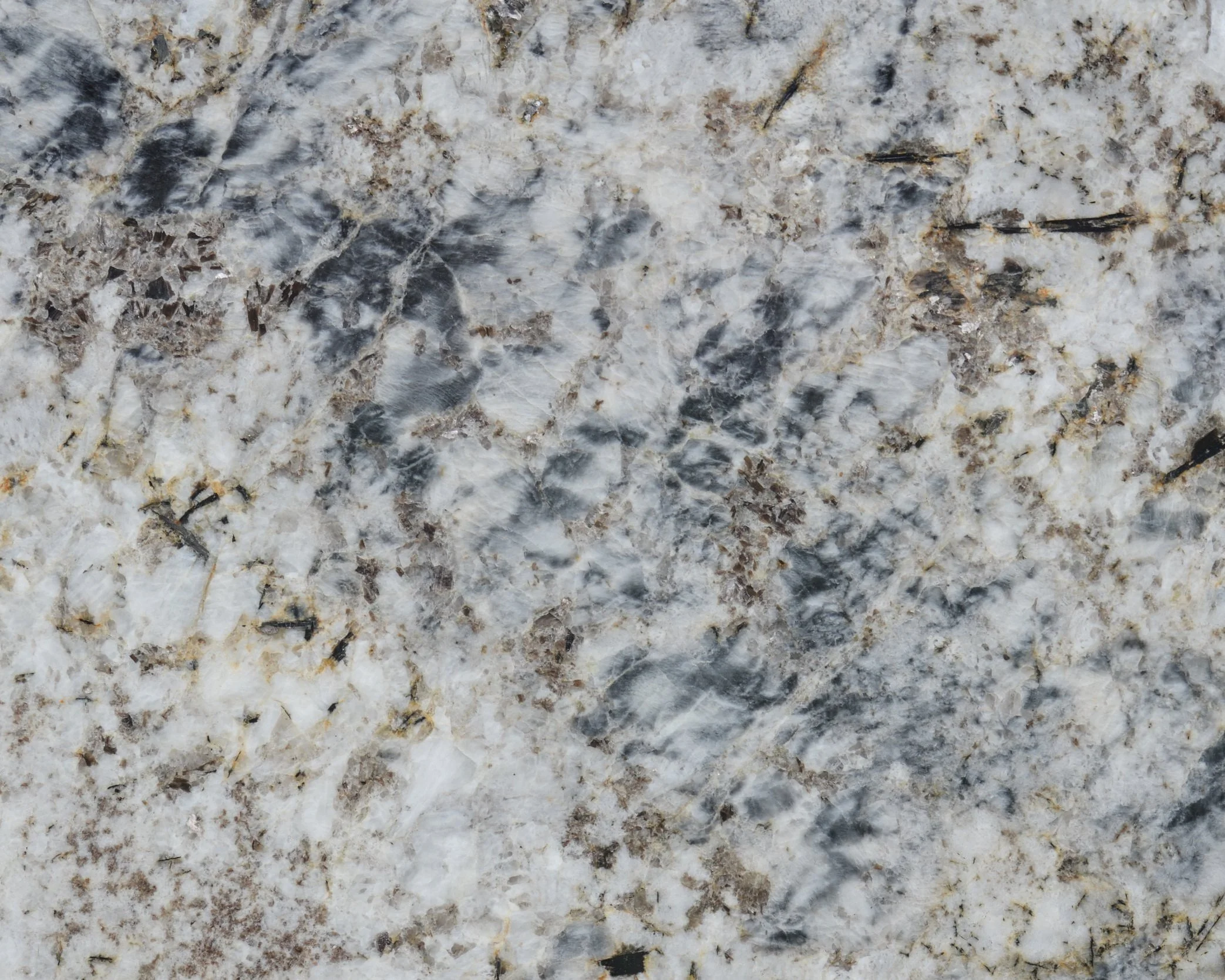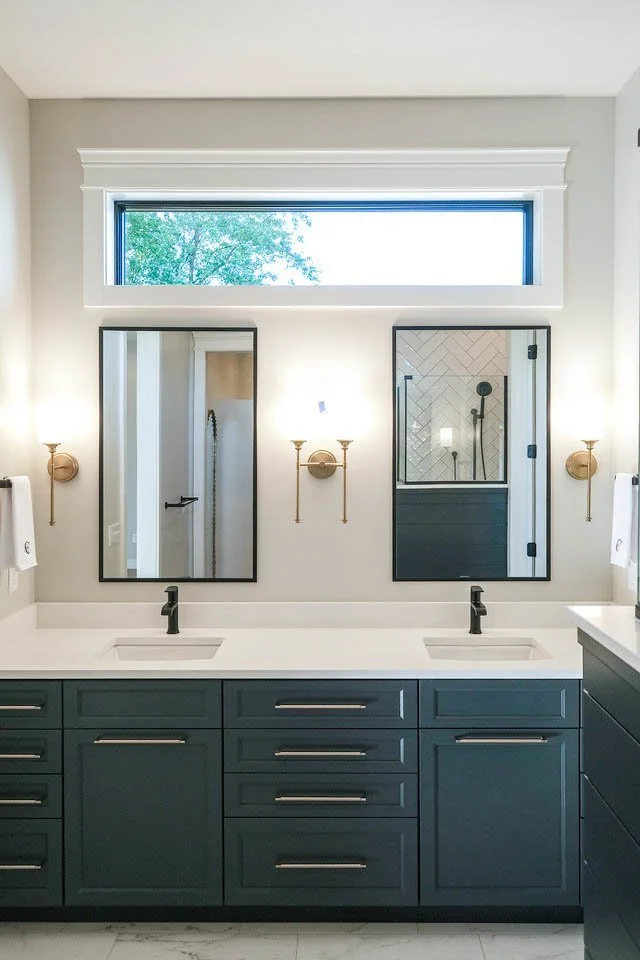What is the Difference Between Granite and Quartz?
When it comes to selecting stone countertops, our two most popular choices are granite and quartz. Each material is a beautiful and durable choice of countertop, but they differ in composition, appearance, price, and maintenance. Read on to learn the differences between granite and quartz so you can make the best selection for your home and lifestyle.
Composition: Natural Stone vs. Engineered Stone
Granite is a naturally occuring igneous rock consisting primarily of natural quartz, mica, and feldspar. Raw granite blocks are mined from quarries, cut into slabs, and finished for installation (marble and quartzite are also considered natural stones). In comparison, quartz is a manufactured material comprised of crushed-up natural stone bonded together by plastic resins, formed into slabs, and finished for installation.
Appearance and Characteristics
Granite slabs typically feature beautiful flecks and/or veins of color ranging from neutrals like cream, white, black, and silver, to more vivid shades of red, green, gold, blue, and rust. Patterns within granite slabs can vary in consistency and color as each slab of natural stone is unique and unpredictable. Imperfections and striations are normal and to be expected when dealing with natural stone.
Quartz slabs tend to be more consistent in color and pattern due to the manufacturing process. Pigments are added during production meaning that quartz comes in an especially wide range of colors and patterns. Many quartz designs mimic the look of natural stone and concrete.
price of granite vs. quartz
Granite and quartz are categorized by price groups ranging from Group A to Group I and beyond to ‘Specialty’ pricing. It’s a common misconception that quartz costs less than granite. On average, quartz will start at approximately $20 more per square foot than the lowest price group of granite. The most accurate way to estimate how much a material will cost is to send us a layout drawing of the area so we can account for all details associated with the job (i.e., sink cutouts, edge detail, template/install, etc.).
what are granite and quartz best used for?
Granite is best used for kitchen, bath, and bar countertops, fireplace surrounds, outdoor countertops/areas, and other heavily used surfaces.
Quartz is best used for kitchen, bath, and bar countertops, some fireplace surrounds, and other heavily used surfaces. Quartz is not recommended for outdoor use as prolonged weather exposure can cause discoloration.
DURABILITY, care, and MAINTENANCE
Granite and quartz are both low-maintenance and durable materials but differ in how they should be cared for. The main differences in durability come down to porosity and heat resistance.
Granite is naturally porous meaning that liquids can seep into the stone if left to sit on the surface. At Capital Granite, we triple seal all natural stone before installation to protect against staining from liquids, and we recommend resealing granite countertops at some point, but the frequency can vary between materials. Most granites can go several years without needing to be resealed. Generally speaking, an easy way to determine if your sealer is performing would be to apply a drop of water at least 1 inch in diameter to the top of the stone and let it sit for 10-15 minutes. Cover the area with a glass to inhibit evaporation. Wipe away water with a dry cloth. If there is rapid absorption and a darkening of the stone, it is time to re-apply a sealer.
Granite is highly heat resistant and while high temperatures will not damage granite, we recommend the use of hot pads or trivets when setting hot items on granite countertops.
Quartz has low porosity so liquids will not absorb into the surface as with a natural stone, but spills should still be cleaned up promptly - though quartz does not require resealing, it is not impervious to damage caused by chemicals, dyes, and abrasive particles.
Quartz is susceptible to high heat due to the plastic resins used in the production process, and the level of heat resistance depends on the manufacturer. Placing hot items on quartz surfaces can scorch the resins resulting in burn marks, discoloration, and/or cracking. Always use hot pads or trivets when setting hot items on quartz countertops.
daily cleaning for granite and quartz countertops
For routine clean-ups on granite countertops, use a mild soap (i.e. dishwashing liquid) and a damp cloth/sponge. Avoid abrasive cleaners and harsh chemicals. We recommend More Stone & Quartz Cleaner + Protector for daily cleaning and Capital Granite 3-in-1 Spray Wax for monthly cleaning and polishing.
For routine clean-ups on quartz countertops, use a mild soap (i.e. dishwashing liquid) and a damp cloth/sponge. Avoid abrasive cleaners and harsh chemicals. We recommend More Stone & Quartz Cleaner + Protector for daily cleaning.
See our Care and Maintenance page for our full list of products.
what quartz brands do we carry?
Because quartz is an engineered material, it is associated with different manufacturers and brand names. We carry the following quartz brands at Capital Granite:







